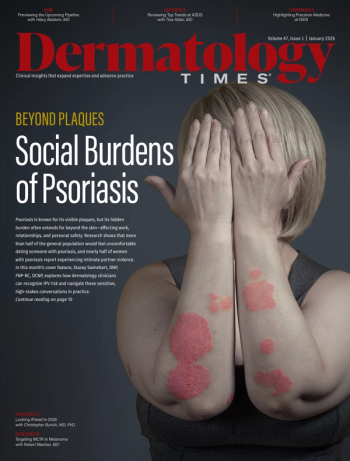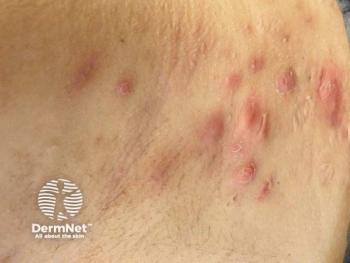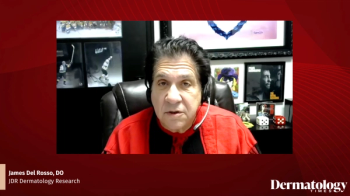
Crowdsourcing pinpoints unmet needs in eczema research
A new study using crowdsourcing harnesses the power of social media chatter to better understand unmet needs in eczema research.
The topics tackled in the atopic dermatitis literature are not always in line with what parents need to optimally care for their children who suffer from the moderate-to-severe forms of the disease, according to a
There’s a great need in atopic dermatitis to conduct more patient-centered research, addressing such things as concerns about long-term steroid use, optimal use of moisturizers and ointments and questions about diet’s association with eczema, according to the commentary’s lead author Korey Capozza, M.P.H., whose son has moderate-to-severe eczema.
“A lot of research is looking at the basic science: Questions around genetics or … microbiology questions related to skin,” Capozza says. “But some of the issues that parents are interested in are actually much more practical. Yes, we’ll never understand how to cure eczema without the more basic research, but there’s also this other need for practical research that’s relevant to patients.”
Capozza, who helped to launch the 860-member international
The researchers then looked at whether the topics of concern among parents were in line with what’s covered in the research literature. They applied the topic modeling approach to glean topics from recently published research on atopic dermatitis in a PubMed database from April 2011 to October 2014-the same timeframe they used to study social media chatter on the topic.
Capozza and colleagues found that 70 percent of the topics that were top of mind among patients and caregivers of children suffering from atopic dermatitis were rarely found in research abstracts. Rather, topics concentrated among a few topics, such as skin immunology, risk factors, pathogenesis and studies of topical treatments. In fact concerns about side effects of steroids and other creams, which had a prevalence of 17 percent among parents of children with eczema, were covered in about 1 percent of the abstracts.
The crowdsource study, Capozza says, is an opportunity to ask: How do we bring these two groups-parents and researchers--together so that research isn’t occurring in a vacuum, divorced from the needs of patients and families?
“My interest in the topic and the crowdsource study is really born out of my experience of caring for my son, and finding, with his care, that there’s still a lot of confusion … about how to optimally treat him,” Capozza says.
Crowdsourcing helped the researchers tap thousands of comments, eliminating the painstaking and often expensive approach of finding patients and families with the relatively rare moderate-to-severe form of eczema and surveying them.
“My son has never met another kid with moderate to severe eczema, but social media changes that. You can connect across very large geographies where people and families are going through the very same things. This affords a very large scale view of what’s going on for patients with rare conditions,” Capozza says. “Parents on these sites talk about things they’ve tried, problems they’re having, experiences with treating eczema….”
Building on this work
Global Parents for Eczema Research aims to bridge the gaps in research.
“Our goal is really to partner with researchers and dermatologists on patient-centered research,” Capozza says. “So, we’d like to work with the great minds out there that really know how to do rigorous research and look at some of these issues and questions that are high priorities to patients.”
Korey Capozza and her son Elio
There is money available for patient-centered research. A provision in the Affordable Care Act of 2010 resulted in the Patient-Centered Outcomes Research Institute, which oversees an annual budget of $462 million and is fueling new research that involves forming research questions based on feedback from patient communities. Global Parents for Eczema Research was selected for a Pipeline to Proposal award by the
“We have workgroups going on around some of the priority areas that we’re interested in. We also want to get the input of dermatologists and other clinicians … because they’re on the frontlines and are having regular conversations with patients and families about the issues they’re facing and the needs that they have,” Capozza says. “We are open and eager to have new parents and clinicians support our group.”
Global Parents for Eczema Research has set specific goals for research and intends to secure partnerships with researchers and clinicians in the next two years, according to Capozza.
For more information, see the Website:
The group also has a Facebook page at:
Reference: Capozza K, Shao Y, Zeng Q. "Crowdsourcing" a patient-centered research agenda for pediatric atopic dermatitis. Int J Dermatol. 2016 Jul 14.
Newsletter
Like what you’re reading? Subscribe to Dermatology Times for weekly updates on therapies, innovations, and real-world practice tips.










